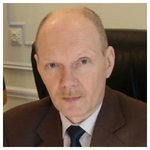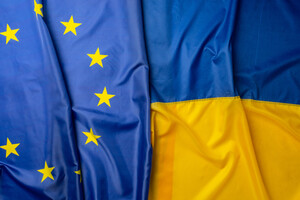There are few such people: where and why to create an "incubator" of Ukrainian European integrators
The "unanimous" decision of the European Council to start negotiations with Ukraine on joining the European Union, adopted on December 14, 2023, closed the topic of uncertainty and opened the way for diligence and professionalism. That's right: first of all, our side will need diligence and professionalism during the multi-year negotiations with Brussels on the terms of joining the community. It is about detailed and comprehensive negotiations regarding the inclusion of Ukrainian society, all branches of government and all forms of ownership to a single conglomerate of law called Acquis communautaire. Political reasons and empathy, which significantly facilitated the adoption of historical decisions regarding the application and potential membership, should be put aside for now, as they may be needed in the finale of the Ukrainian European epic.
Diligence and professionalism are expensive virtues, especially in a country that is fighting a terrible war and has lost more than 4 million refugees and tens of thousands of soldiers, hundreds of scientific, professional, research, educational, industrial institutions and businesses. Meanwhile, these qualities are needed by the people who will make up the national negotiating teams for talks with Brussels on 35 topic-chapters – from statistics to fishing, from taxation to the judiciary. They will open the way to the European Union.
There are few such people in Ukraine today. Not everyone is fluent in English, not everyone is perfect in legal matters, not everyone wants to leave their profession or business for many years of inconspicuous work.
In addition, it is not easy to find such people. The war separated not only families, but also institutions, divided not only by borders, but also by memory.
This challenge is particularly difficult also because the future negotiating team of Ukraine will be opposed by experienced Brussels professionals who have been engaged in precisely this for years – the negotiation process with candidate states. As a famous European figure once said, in fact Brussels is not about trade or markets, it is about the negotiations that provide them.
Perhaps, it is appropriate to remind here that the European Union is conducting negotiations with the candidate country not in order to agree to some kind of mutual compromise between its legislation and its legislation, but to help understand how exactly the national legal space should be changed in favor of the European one. And then representatives of the European Union will further monitor its widespread application. The skill of the candidate is to foresee the problems that may arise in the society in case of too fast implementation of the European law and to agree on postponement and in some cases - on exceptions related to the peculiarities of the country and local traditions. We have to prepare such a national Ukrainian team before the start of negotiations in March 2024.
Every successful national team is the product of a good coach and long and exhausting training. It would not be an exaggeration to say that we already have a head coach at the strategic level in the person of Deputy Prime Minister Olga Stefanishyna. It is necessary to look for advisers and mentors for all 35 sections, it is necessary to arrange conditions for training, sparring games, formation of negotiating groups, difficult exams with the elimination of weaker ones and the involvement of new, stronger candidates. A demanding, professional European atmosphere is needed despite the war and outside of the war, because Ukraine's accession to the EU is also a war. For the rule of law, welfare, security.
Thoughtful work requires a retreat. Perhaps Natolin could be such a place.
In 1992, having just freed themselves from Communist-Soviet slavery, the Poles turned to the European Union with a request to help open a new educational institution in their country – a "daughter" of the European College, founded in Bruges, Belgium, back in 1948. Traditionally, the College of Europe offers master's programs in the fields needed by officials in EU bodies and politicians who care about the European Union. So, the new institution, located in Natolin, in the southern park part of Warsaw, began to train masters in European interdisciplinary studies. Within this program, they specialize in issues of European governance and policies and relations with neighboring countries (especially in the context of enlargement). The courses are taught by specialists who could advise Ukrainian guests. Similar assistance could be provided by Polish European experts.
Why here in Poland? Poland is a country commensurate with ours, close in terms of population, economy, and the problems of areas irritating for the European Union. Our path to Brussels will in many ways resemble the path of this country. Thus, one of the difficult areas for Ukraine is agriculture, because modern Ukrainian agriculture has become a serious competitor for many EU countries. Poland was such a competitor at the time of its accession, which persistently, long and skillfully defended its interests in the relevant negotiation process. Experience – and, therefore, relevant specialists – from Poland may also be of interest to our side in matters of transport, the rule of law, food safety, public procurement, and many others. While in Natolin, the Ukrainian negotiating team will have quick access to experts and documentation on each specific issue. The friendly pro-European Polish government will certainly not refuse support.
In addition, such cooperation will have an additional positive effect: it will help to understand each other in those areas where Ukraine unwittingly becomes a competitor of Poland. It is a matter of mutual interest, because conflicts such as self-imposed blockades of traffic at the border cause economic and political losses to both parties. It is imperative and urgent to avoid their repetition, accumulation of insults and misunderstandings.
Advisers from all over Europe could come to the "negotiation hub" in Natolin at the request (or invitation) of the Ukrainian side, which would be much more difficult if it were about coming to the territory of Ukraine.
A question may arise: why do we need advisers? Why do we need gurus, teachers, mentors? Can't we handle it ourselves? And don't all our secret negotiating positions and secrets be found out in the process of giving these tips?
As we know throughout human history, only fools need advisors. In one form or another, we have taken over rich experience from various European countries in all areas from the very beginning of our integration path. Croatia, the youngest in terms of length of stay in the European Union, has been generously sharing it for more than a year. Our specialists receive a lot of useful information from friends from the Baltic countries, Slovakia, the Czech Republic, and Romania. But in this case, it is not about individual Ukrainian requests on specific issues, but about systematic preparation for screening (literally – sifting or undressing, as you prefer) of the entire Ukrainian public and state body by the most meticulous professional inspectors. Our success will depend on comparative professionalism. Which, as already mentioned, is obtained by exhausting training.
From this point of view, at least for several of the most difficult negotiating sections, the Natolin site also looks attractive.
After all, it is not about the fact that the Ukrainian negotiating position should be formulated precisely in the Polish capital. Prepared in Kyiv in cooperation with industry associations of producers, with civil society, government officials, it will actually be polished in Natolin, absorbing those "Brussels" know-how, which, we hope, will be shared with us by both Polish and common European partners.
Of course, the stay of many leading specialists abroad and the involvement of foreign advisers will require expenses. Therefore, we should ask whether the European Union and domestic business sponsors would help us in this. After all, by defending Ukraine's negotiating position in metallurgy or mechanical engineering, we help our leading businesses maintain profitability.
However, something else is also important. According to the Information Processing Center of the Republic of Poland, this year more than 48,000 foreign students (out of 102,000) were citizens of Ukraine. There are also many of our recent graduates of local universities. With a thoughtful approach, many of them would be interested in contributing their own time and knowledge to help the Ukrainian project in Natolin.
Experience and enthusiasm go together, so why not?
Please select it with the mouse and press Ctrl+Enter or Submit a bug















 Login with Google
Login with Google